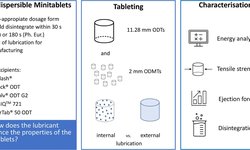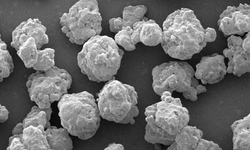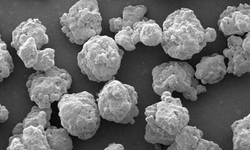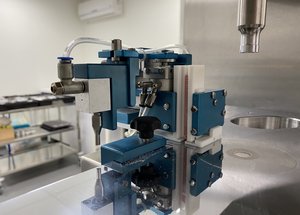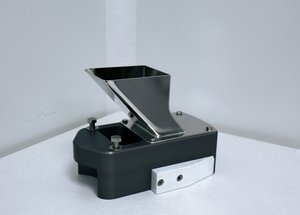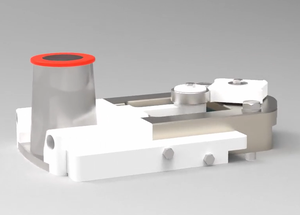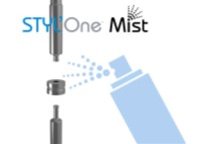Scientific papers
Lubricants play a vital role in most tablet formulations by aiding powder flow, preventing adhesion to tableting tools, and facilitating tablet ejection. Although magnesium stearate (MgSt) is commonly used as a lubricant, it can potentially compromise tablet strength and disintegration. In the development of orally disintegrating tablets, tablet strength and disintegration time are crucial factors. Therefore, this study aimed to comprehensively compare MgSt with alternative lubricants such as sodium lauryl sulfate (SLS), stearic acid (SA), and hydrogenated castor oil (HCO) regarding their effects on the tableting process and tablet properties.
Different powder blends were prepared with lactose, sodium starch glycolate, or crospovidone as the disintegrant, along with varying concentrations of lubricant. The angle of repose was measured for each mixture. Comparative analysis was conducted based on parameters including ejection force, tensile strength, liquid penetration, and disintegration time of the tablets produced. With an increase in lubricant concentration, both powder flow and tablet ejection were enhanced.
The efficiency of lubrication generally decreased in the order of MgSt > HCO > SA > SLS. Despite MgSt's superior lubricating properties, it was the only lubricant among the four evaluated that reduced tablet tensile strength. Tablet disintegration time was predominantly influenced by tensile strength and liquid penetration, which in turn were impacted by the type and concentration of lubricant used.
All these factors should be carefully considered when selecting the type and concentration of lubricant for formulating orally disintegrating tablets.
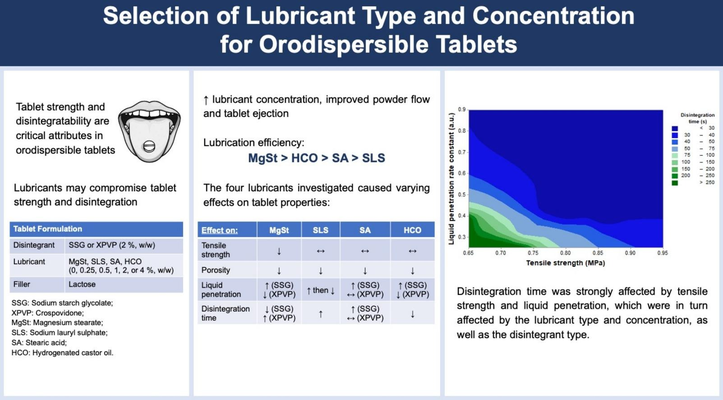
Comments
No comments posted yet.
Add a comment

